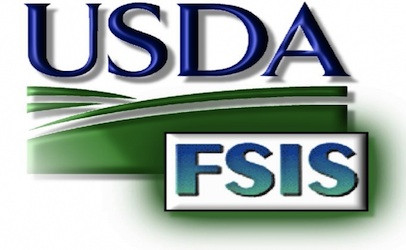Opinion
By Dr. Michael Fisher
The USDA’s Food Safety and Inspection Service (FSIS) is proposing to amend its regulations to require official meat and poultry establishments and egg products plants and businesses receiving voluntary inspection services that have an internet connection to provide FSIS access to that internet connection for the purposes of conducting and recording inspection verification activities. FSIS claims that internet service is a necessary utility, like lighting, heating, and laundry services, that should be provided as a regulatory condition of receiving inspection.
FSIS schedules, assigns, tracks, and documents inspection tasks in the FSIS Public Health Information System (PHIS); a web-based software application. PBIS requires internet access so that FSIS inspection program personnel (IPP) can be notified of scheduled work assignments and record work performance results.
Scheduling work and recording performance are management functions, not inspection. FSIS is justified in requiring establishments to provide resources, without which IPP cannot perform inspection. Internet access is not such a resource. IPP have successfully performed inspection without internet access since 1906. Internet access may be a necessary resource for FSIS supervisors and managers to carry out Agency management tasks. It is not a necessary resource for IPP to perform inspection. A regulated industry should not be made to pay for internal government agency administrative services.
FSIS cites the Federal Meat Inspection Act, Poultry Products Inspection Act, and the Egg Products Inspection Act as its authority in this matter. Nothing in these statutes authorizes the Secretary to prescribe regulations aimed at the performance of internal Agency administrative and management tasks. That authority flows from 5. U.S.C. and is not delegated to FSIS by 9 CFR 2.53.
The suggestion that Executive Orders (E.O.s) 12866 and 13563 compel FSIS to undertake this rulemaking is disingenuous.
E.O. 12866 opens with the statement that, “The American people deserve a regulatory system that works for them, not against them.”
E.O. 13563 opens with the statement that, “Our regulatory system must protect public health, welfare, safety, and our environment while promoting economic growth, innovation, competitiveness, and job creation.”
Docket No. FSIS–2020–0019 works against the American people, economic growth, and job creation by imposing an economic burden on the regulated industry. The intended outcome of Docket No. FSIS–2020–0019 is clear. “FSIS would have cost savings by reducing the costs of providing internet access to FSIS IPP at establishments.” E.O.s 12866 and 13563 compel FSIS to reform itself internally; not to balance its budget on the back of the regulated industry and by extension, the consumer.
Internet access is not a necessary utility, without which IPP cannot perform inspection. FSIS already provides adequate internet access for IPP. FSIS has neither a legitimate need, nor authority, to reduce its operating costs by pushing the cost of internet access off onto the regulated industry.
For what it’s worth, that is my opinion.
About the author: Dr. Michael Fisher grew up in Iowa and obtained a BS, DVM, and MS from Iowa State University. He began his career with FSIS in the Office of Field Operations and retired from the Office of Policy and Program Development. His assignments led him to collaborate with multiple program areas, on various issues, in all parts of the country. Fisher is also a U.S. Army colonel, retired. He is a graduate of the Army Command and General Staff and Army War Colleges. His assignments focused on food service sanitation, subsistence inspection, and animal care from company level to general staff.
(To sign up for a free subscription to Food Safety News, click here.)

